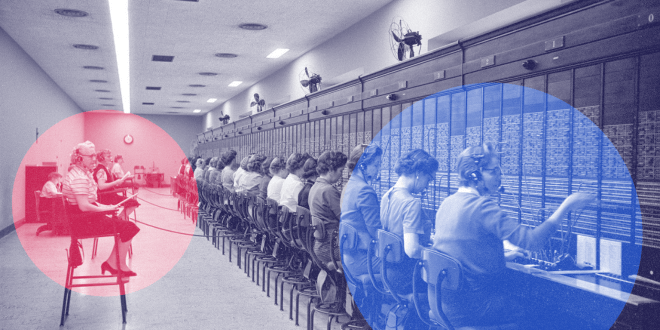Dispatch | November 9-15: Loss of innocence
There were times, in the time long past, when the grass was considerably greener on the other side of the iron curtain. And indeed it quite tangibly was.
Similarly, the 1990s pro-Western reformers wistfully painted a figure of the virtuous European (or American) bureaucrat in rosy tones. But as time passed and as a distant aspiration towards European institutions became a routine relationship, the reality of Westerners being humans, with human flaws, has dawned. Georgia is going down the same road, but geographic distance, as well as the mental rift, means rapid mood swings from the adulation of the European political class, to itc cynical rejection. These were the days when faith in Europe’s good intentions has taken a hit.
SEE NO EVIL EU’s enlargement commissioner, Olivér Várhelyi, is a controversial man. He has been called “Oban’s man in Brussels” by respectable Deutsche Welle, and even the “Voldemort of enlargement” by no less respectable Politico. The chief claim is that the commissioner pursues Hungarian president Victor Orban’s agenda with more zeal than that of the Commission, and is particularly keen on stacking the EU with governments that share and replicate Fidesz’s particular vision of democracy. Unsurprisingly, Hungary is the partner of choice for the current authorities in Tbilisi. Also unsurprisingly, Mr. Várhelyi’s visit to Tbilisi brought much-needed European credentials to PM Garibashvili’s government. Yes, the commissioner said all the right things about the need to tackle corruption, and even mentioned values. But the gist of his statement was about economic interests – LNG terminal, power cable on the Black Sea bed, and internet cable to link Georgia to the EU. But on political hot-button issues, his message was clear – apparently, he saw a “booming economy” (commissioner he walked the central Tbilisi street, to back that up), the government working “very hard” to meet EU recommendations, and even dug out “positive developments regarding judicial reform” somewhere. He also claimed to know nothing about the plight of the media and opposition and that “there are no names” regarding de-oligarchization – apparently commissioner has tossed the EU parliament resolution straight into the trash. All of this left the government and the “Georgian Dream” ecstatic, the opposition depressed and Georgians confused. There is a hard road ahead towards seeking the critical equilibrium: respecting EU institutions, remaining realistic about its quirks and shortfalls, and accepting that some officials are…well…self-serving. Brussels should be conscious that it leaves a hypothetical pro-European Georgian (there are many of those) in a mental dilemma: can the government that clamps down on media and CSOs, stacks courts with loyalists, rejects minority rights, stay a member of the EU and even admit new members into the EU, created in their own image?
TOTAL RECALL Yet another piece of news to add to the European ambiguity: Berlin has apparently pulled the radical Putin-excuser from the EU Monitoring Mission – an unarmed force deployed to monitor the 2008 Russo-Georgian ceasefire. The man, a member of the extreme-right AfD, apparently was refused clearance by the German army, but got into OSCE and the EU without a hitch, while still professing his views openly on social media. Once again, the news plays off the skepticism of Georgians into German motivations, as well as the cynicism towards international organizations. Putting those houses in order is what Europe needs – and what Georgia needs as well, if it is ever to move towards Europe, not though using Orban’s cheat sheet, but genuinely, by accepting European values and adapting its institutions to serve the public good.
RUMBLES FROM WITHIN As we predicted, the UNM, Georgia’s largest opposition party, is in the throes of a leadership challenge. The party says a seven-member working group is set up to prepare for the leadership election. The group will have to lay down the election rules by November 22, after which the document will be submitted to the Political Council for approval. On November 9, several UNM members openly challenged the leader, Nika Melia. So far, three people have announced their challenge to Melia, who intends to fight. Some netizens welcome the emergence of party democracy, while others say Melia is being sacrificed to the interests of UNMs alleged financial donor, David Kezerashvili, and the debate is far from being about the legitimate difference of opinion and substantive debate. The “Georgian Dream” and its media arms have expanded efforts to frame Kezerashvili as an oligarch and published alleged surveillance images insinuating he is remote-controlled by the US official Kurt Volker, an American diplomat who served as the U.S. Ambassador to NATO and as executive director of the McCain Institute for International Leadership. Volker has long been a fixture of Tbilisi’s think-tanks hangouts. Linking UNM, US, and CSOs in a conspiracy against the “Georgian Dream” and, by extension, the whole nation, has been one of the favorite pastimes of the ruling party, and now they sense the opportunity for getting rid of all these in one fell sweep.
That’s where things stood this week. In other developments, Sokhumi has uncharacteristically picked up on Tbilisi’s conspiracy theory, that the West is dragging Georgia into war against Russia. The role of conspiracy theories in confidence-building is something that clearly needs to be explored further. With this thought, and looking forward to an invitation the moment a conference, round table, or panel is convened to discuss this groundbreaking insight, we bid you adieu till next Wednesday!
